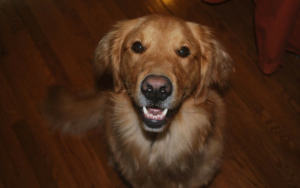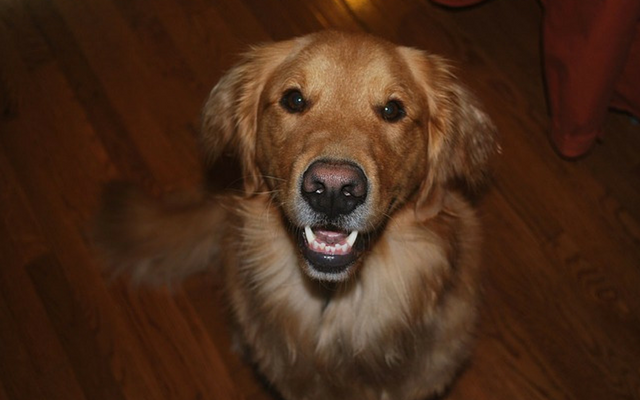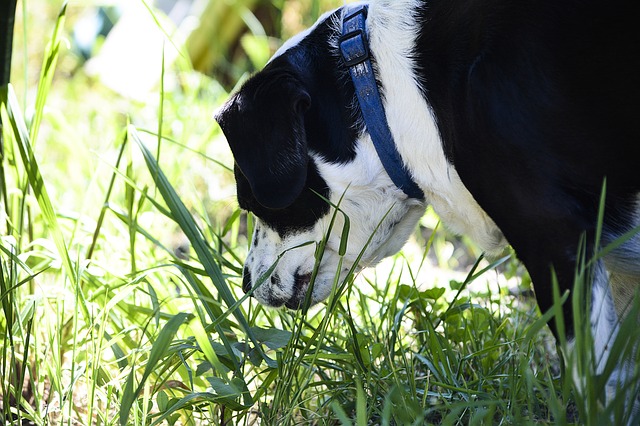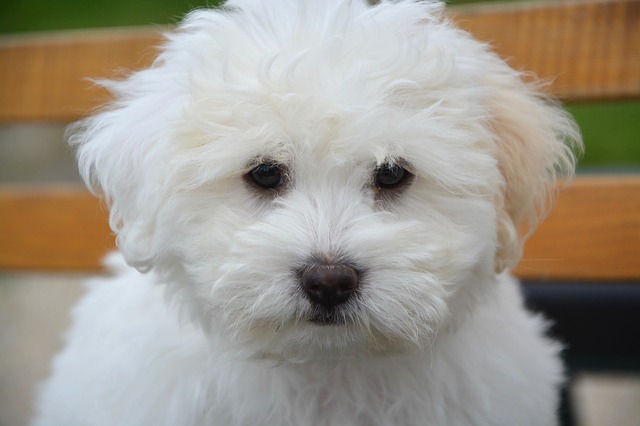
A dog owner’s first instinct when they see their pup chattering their teeth is usually to grab a blanket. Humans clack their teeth together when the’re cold, and it’s true dogs occasionally do it too. It’s the body’s attempt at generating more heat, but what if it’s the middle of summer and your pup is out on a long walk? Or maybe you’re inside your cozy home about to play with a new toy?
There are some situations where temperature-related teeth chattering doesn’t make sense. In these cases, there are other likely reasons why your dog’s jaw seems to have a mind of its own. Sometimes it’s a harmless canine behavior, and other times it’s a sign of something more serious.
Here’s some insight to help you better understand what’s going on with your furry friend.

Excited Anticipation
Like a child that can’t sit still or the feeling you get when you see the waiter walk toward your table with a tray full of food, teeth chattering in dogs can be a sign they’re excited about what’s about to happen. Pet MD suggests dogs with high energy and high prey drives are usually more likely to display this type of behavior, but any happy dog can do it. Daily Dog Stuff says,
“Furry friends might even start the habit in the middle of a play session because they are overjoyed and must express it somehow. If that’s the case, there’s nothing to worry about. This impulsive behavior is coming from something positive.”
If you’re bending down to throw their favorite ball or grabbing their dish to prepare their dinner, chattering teeth is a sign your dog wholeheartedly approves of whatever you’re about to do. Their only suggestion is that you do it faster.
Anxiety and Fear
On the opposite end of the emotional spectrum, dogs also chatter their teeth when they’re feeling uneasy. It’s a type of coping mechanism dogs use to help process their feelings in times of stress. Many behaviorists consider it to be similar to a person wringing their hands, tugging at their clothes, or biting their nails when they’re nervous. It’s usually an involuntary action that helps the dog focus their emotions.
Your dog might start chattering their teeth when they see another dog approaching their territory or when they hear thunder rumbling in the distance. Dogs with separation anxiety might also clack their teeth as they watch their person get ready to leave them for the day. It’s their way of expressing their emotional discomfort. While addressing the underlying cause of their anxiety can help, teeth chattering due to anxiety is a normal behavior.
Special Smells
With 60 times as many scent receptors as humans, it’s no secret dogs have impressive sniffers. They can pick up scents seemingly nonexistent to their owners, but that’s not all they can do. A special organ called the “vomeronasal organ” gives dogs the power to “taste” smells. This small organ is located near the dog’s nasal bones and includes a duct called the “incisive papilla” on the roof of the dog’s mouth. Its main job is to send “scent messages” from the nose/mouth to the brain for the dog to analyze.

To dogs, smells are more than just smells.; they also tell a story. Dogs leave behind chemical signals called pheromones in their urine that convey specific emotions. When you’re out on your walk and your dog picks up on one of these special scents, they’ll want to decipher the message. To do that, they need to get the scent molecules to their vomeronasal organ. They do this by using their tongue and jaw to waft the smell toward the incisive papilla. The combination of chattering their teeth and moving their tongue gives them a better “taste” of what they’re smelling.
Medical Issues
Doggy teeth chattering is usually a natural behavior and nothing to worry about, but there’s also the possibility it could be a symptom of a medical issue. Dogs with dental problems sometimes chatter their teeth when a cavity or infection causes them pain. If that’s the case, the chattering will most often be accompanied by other signs of trouble like bleeding gums, bad breath, or a chipped tooth.

There’s also the slim chance the chattering is a sign your dog has canine distemper. This life-threatening disease causes small seizures that can be focused on the jaw. Distemper is thankfully rare because of the widely used vaccine, but if your dog has not been vaccinated, it’s a possibility. A condition called neuronal degeneration or white dog shaker syndrome can also cause uncontrollable teeth chattering according to K9 of Mine. Small white dogs are most at risk, and it’s usually characterized by full body tremors along with teeth chattering.
To figure out which one of these reasons makes the most sense for your teeth chattering dog, think about what’s going on around them when it happens. Situational context will give you clues as to whether it’s a natural behavior or if it’s time to visit the vet.
h/t: Daily Dog Stuff, K9 of Mine
via Whisker Therapy